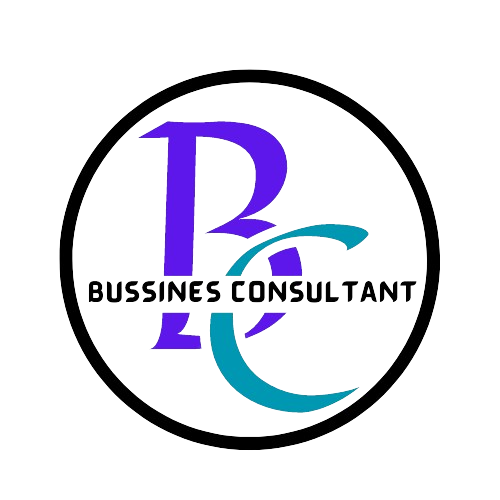Importance of Business Planning
Why Entrepreneur Needs a Plan
A good business plan is like map for your entrepreneurs. Here are some critical reasons every entrepreneur should consider:
- Clarifying vision and mission: A well-thought-out business plan helps crystallize what your business stands for and its long-term aspirations. It serves as the foundation for everything you do, ensuring your daily actions align with your overarching purpose.
- Setting measurable goals and objectives: Setting clear goals gives you something tangible to work towards. Whether you aim to increase sales by 20% in a year or launch a new product line, measurable goals keep you focused and motivated.
- Facilitating decision-making: Entrepreneurs face numerous decisions daily, from operational choices to strategic shifts. A business plan provides a structured framework that helps you weigh your options and make informed decisions.
Common Misconceptions
Many entrepreneurs harbor misconceptions about business plans that can hinder their success:
- A plan as a rigid document: Some new business owners think a business plan needs to be set in stone. In reality, it should be a living document that evolves with your business.
- The misconception of an irrelevant formality: Many see a business plan as just a formality to check off when starting a business. However, it’s a roadmap guiding your decisions and strategies.
- Overlooking the evolving nature of plans: Markets change, customer needs evolve, and new opportunities arise. A good business plan incorporates these changes and adapts accordingly.
Role of Business Plans in Securing Funding
Entrepreneurs often seek funding to kickstart their ideas, and a business plan is crucial in this process:
- Attracting investors and lenders: A well-prepared business plan helps potential investors or lenders understand why your business is a worthy investment.
- Articulating financial projections: Financial forecasts included in your plan provide insights into the potential return on investment, making it easier to persuade those with the capital you need.
- Demonstrating market potential: A comprehensive analysis of your target market and competition shows investors you’ve done your homework and understand your industry landscape.

Key Components
Executive Summary: Your Business at a Glance
The executive summary is the first section of your business plan, but it should be written last. This section should include:
- Purpose and objectives: Why does your business exist, and what do you hope to achieve?
- Business model overview: Explain how your business will operate and generate revenue.
- Summary of financial needs: Outline how much funding you require and how it will be utilized.
Market Analysis: Understand Landscape
Your understanding of the market is crucial for success. Key aspects include:
- Identifying target market segments: Determine who your ideal customers are and what their needs are.
- Analyzing competitors: Understand who your competitors are and what sets you apart from them.
- Assessing market trends and dynamics: Keep an eye on the industry trends to ensure that your business aligns with current and future market needs.
Marketing Strategy: Reaching Audience
Your strategy to attract customers is vital. Here’s what to consider:
- Define your unique selling proposition (USP): What makes your product or service stand out?
- Strategies for promotion and outreach: Consider social media, email marketing, content marketing, and traditional advertising based on your audience’s preferences.
- Sales strategies and distribution channels: Decide how you’ll sell your products and reach your customers — online, in-store, or both.

Financial Planning Essentials
Budgeting:
Understanding your finances is crucial for sustainability. Focus on:
- Types of budgets: Create various budgets such as operating, capital, and cash flow to cover all needs.
- Estimating startup costs: Know how much funding you’ll need to start operating and plan ahead.
- Setting pricing strategies: Ensure your pricing reflects the value you provide while remaining competitive.
Financial Projections:
Anticipating future financial performance is essential. This includes:
- Creating revenue forecasts: Based on your market analysis, estimate potential revenues.
- Projecting expenses and profits: Understand all your costs to ensure your pricing covers them.
- Understanding break-even analysis: Determine how long it will take to become profitable based on your projections.
Funding Options:
When seeking funds, consider various options:
- Personal savings and bootstrapping: Many entrepreneurs start by using their savings to maintain control of their business.
- Loans versus equity financing: Consider whether you prefer loans (which you’ll pay back) or equity (which gives investors a stake in your business).
- Crowdfunding and grants: Look into alternative funding sources like crowdfunding platforms or grants from organizations supporting entrepreneurs.
Implementation Strategies for Entrepreneurs
Setting Milestones:
Documenting your achievements helps maintain focus:
- Short-term vs. long-term objectives: Break your larger goals into smaller, achievable targets.
- Performance indicators and metrics: Use KPIs to measure your progress.
- Adjusting plans based on progress: Be flexible and willing to adapt your strategies based on what the data tells you.
Building Support Team:
Surround yourself with a strong team:
- Identifying necessary roles and responsibilities: Determine what skills are needed to complement your strengths.
- Hiring versus outsourcing: Decide when it’s more beneficial to hire full-time employees versus working with freelancers.
- Establishing a support network of mentors and advisors: Connecting with those who have experience can provide invaluable guidance.
Leveraging Technology:
Use technology to streamline operations:
- Tools for project management and collaboration: Platforms like Trello, Asana, or Slack can enhance team communication and workflow.
- Utilizing software for financial tracking: Programs like QuickBooks can simplify your accounting processes.
- Marketing tools to enhance reach and engagement: Use social media management tools to help manage and analyze your marketing efforts.
Adapting Your Business Plan
Review and Revise Plan Regularly
A business plan shouldn’t be static:
- Importance of periodic assessments: Set regular intervals to review your progress.
- Identifying when and how to pivot: Stay flexible to make necessary changes based on the current business environment.
- Incorporating feedback from stakeholders: Consider input from team members, customers, and mentors when making revisions.
Staying Informed: Industry Trends and Innovations
Being knowledgeable keeps you ahead:
- Keeping abreast of market changes: Regularly read industry publications or attend relevant events.
- Incorporating new technologies and practices: Embrace innovation to remain competitive.
- Networking within the industry: Establish connections that can lead to opportunities and insights about market shifts.
Preparing for Challenges: Risk Management
Every business faces risks, so it’s smart to plan ahead:
- Identifying potential risks: List possible challenges that may impact your business.
- Strategies for crisis management: Develop plans to address potential crises effectively.
- Building resilience within your business model: Create systems that enable your business to adapt and survive disruptions.
Conclusion
A well-structured business plan is not merely a formality; it’s a powerful tool that guides entrepreneurs through the complexities of establishing and growing their business. By understanding the essential components, financial planning needs, implementation strategies, and the necessity for adaptability, you’re laying the groundwork for long-term success.
A business plan can vary from 10 to 30 pages, depending on the complexity of your business and your audience.
Absolutely! There are plenty of resources and templates available that can guide you through the process.
It’s advisable to review and update your business plan at least annually or whenever significant changes occur.
While not legally required, having a business plan can significantly increase your chances of success.
There are many resources, including books, online guides, and software tools, designed to assist you in crafting a business plan tailored to your needs.




